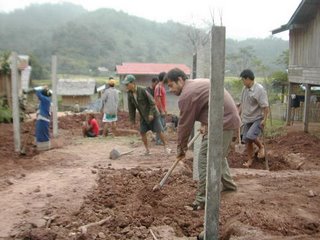A Learning Experience Part 2
HELP!
I had of course looked over my job description provided by CUSO Canada. It had all the prerequisite points on alleviating poverty, empowering communities, encouraging good governance, and other feel good, yet frustratingly ambiguous goals. It did have some concrete objectives like training my counterparts in participatory research (although I honestly had very little understanding of what this really meant in a development context), proposal writing and fundraising, small business planning, project management, etc. Still, I had no idea as to how I was going to actually achieve these objectives once I arrived or how my counterparts might view or understand these ideals, or even if they agreed with them in principle. I had been provided with a week long intensive orientation to development and training in cultural integration, workshops on power and privilege, and gender equality and racism through CUSO, all of which had provided me with a plethora of tools and strategies for adapting to and coping with the mental and emotional strain that can come with taking a volunteer position in an isolated community in a developing nation.
Flexibility and patience. These were the key terms that were pounded into our heads repeatedly during the orientation week. Our job descriptions as told to us by our workshop facilitators, were intended to only provide a framework to guide our actions, not a concrete or tacit agreement, a snapshot of the interests or needs of our Lao partners at a certain time. The only thing we could expect for sure is that everything would change upon our arrival. Given this reality, CUSO cooperants (the term given to volunteers to imply the cooperative and mutually empowering exchange that is supposed to occur between us and our host national colleagues), are encouraged to do practically nothing doing their first six months of their placement, except “watch TV”. A phrase intended to convey the idea that initially we should try only to observe our partners, their day to day activities, their work practises, cultural idiosyncrasies within the office environment, how they identify issues or opportunities and how they go about making decisions and strategies to address them.
In other words: don't rush in thinking you already know everything. Build relationships first, gain people’s trust and get them to open up to your presence. Only then can you hope to approach that elusive question: what can I do? Nevertheless, all of this added up to the only one answer with which I could reply to Garnet with any confidence that day in his office: “I have no idea. I’ll have to see when I get there.”


0 Comments:
Post a Comment
<< Home